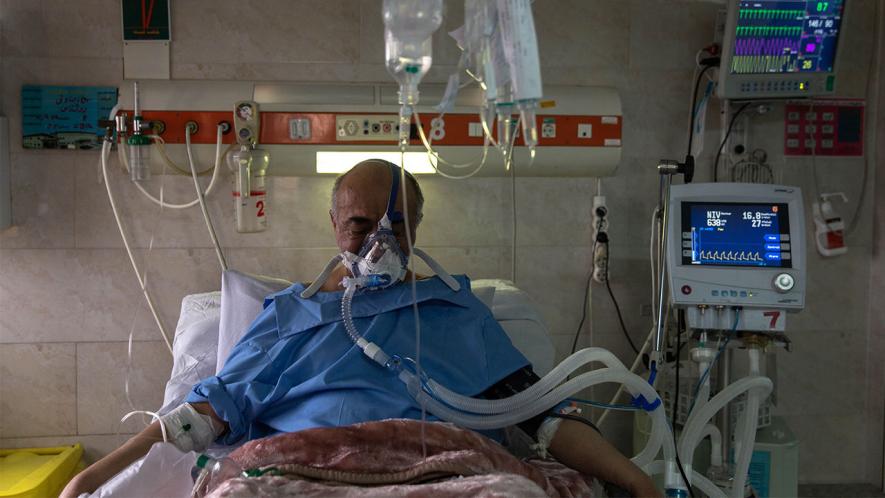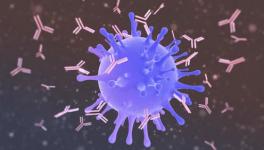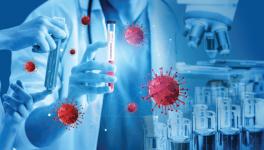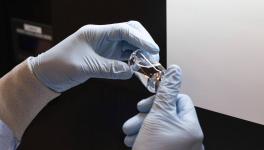Anomaly in Immune System Found to Be Linked with Critical COVID-19 Patients

Representational image. | Image Courtesy: Science Magazine
In latest findings, scientists have reported some anomalies in the immune system to be associated with some COVID-19 patients that were critically ill. They have found that a vanguard fighter molecule of the immune system went missing from action against the viral attack. Named the type I interferon, it is considered to be the vanguard when it comes to fighting a virus inside the body as a first line of defence.
Two studies have been published on the interferon action in the body of COVID-19 patients, one of which says that type I interferon action is missing in patients with severe COVID-19 illness due to genetic architecture of the patients and the other says that some antibodies attack the interferon rendering it ineffective in fighting the virus. Together, the two studies say that over 14% of severe COVID-19 cases account for the immune system anomaly.
Interferons are protein molecules that belong to a specialised group called cytokines. They are released from host cells in response to viral presence. A cell releases interferons when it is infected by virus and by doing so it sends alarm signals to other nearby cells and also invites other immune cells and molecules to come to action. Type I interferons are expressed in every cell of the body and are sentinels in fighting a virus in the early stage of the infection.
In one of the studies, Jean-Laurent Casanova and his team examined the blood samples of 987 seriously ill patients from different parts of world. They found that in over 10% of them, the antibodies in their system attacked and neutralised their own type I interferons. The patients have undetectable level of the interferon in their blood. Their study confirmed that antibodies attacked their own interferons and made it inactive. The researchers also analysed 663 people that they considered as the control group with mild or asymptomatic infection caused by SARS-CoV-2. Their blood samples did not have the attacking antibodies to destroy the type I interferons. Again, in 1,200 healthy people that they studied, these antibodies were found to be almost undetectable. Commenting on it Casanova said, “What this means is that at least 10% of critical COVID-19 is an autoimmune attack against the immune system itself.”
Interestingly, another finding reports that 94% of the patients that have the interferon attacking antibodies were male. This is also surprising because women usually have a higher rate of auto immune disease. Casanova said, “ Our favourite hypothesis is that it is an X-linked recessive trait. Women with two X chromosomes are protected and men, with one, are not,” adding that, “Supporting that suspicion, one woman with a rare condition that silences one X chromosome was among the severely ill patients with autoantibodies.”
Also read: Cheap, Widely Available Steroids can be Life-Saving for Critical COVID-19 Patients: Study
The second paper found genetic architecture of the seriously ill patients to be responsible for inadequate interferon response. The team researching on it took resort in DNA sequencing and they sequenced DNA from 659 critically ill COVID-19 patients along with a control group consisting of 534 people that had mild symptoms or were asymptomatic. They considered 1e genes crucial for the expression of type I interferons and any impairment in these genes may affect production and action of the interferons. They found that 3.5% of the critical patients had rare mutations in eight of the genes. Patients with these mutations had undetectable level of the interferon in their blood. The control group members did not have any of the mutations.
These findings can have immediate effect in treatment. Experts are saying that synthetic interferons that are in use for treatments of other viral diseases might become helpful in treating some of the critical patients.
The findings also have warnings for plasma therapies. The blood plasmas of the recovered patients have antibodies in abundance to neutralise the virus, but, some may have the interferon neutralising antibodies as well.
Get the latest reports & analysis with people's perspective on Protests, movements & deep analytical videos, discussions of the current affairs in your Telegram app. Subscribe to NewsClick's Telegram channel & get Real-Time updates on stories, as they get published on our website.

















